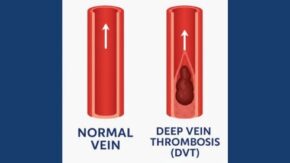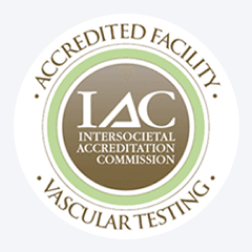Deep vein thrombosis is a condition in which a blood clot forms in a deep vein somewhere in the body. It can be painful and should be cause for immediate concern because it could become potentially life threatening. In cases where it’s left untreated, the blood clot could potentially dislodge from its location (usually, the leg or thigh) and travel to the lungs, also known as a pulmonary embolism. The exact number of people who suffer from this condition isn’t known, but it’s estimated that around 900,000 people develop DVT each year.
What are some of the causes of DVT?
It can be difficult to identify the exact cause, and there may not be one particular cause for any one person. However, it could be helpful to understand the different potential causes that could contribute to your deep vein condition.
- Antecedentes familiares - Quienes tienen antecedentes familiares de trombosis venosa profunda son más propensos a desarrollar también esta afección.
- Estilo de vida sedentario - Quienes llevan un estilo de vida menos activo tienen un mayor riesgo de sufrir un coágulo en las venas de las piernas. Si viajas con frecuencia y permaneces a menudo en la cama o en una silla, podrías tener un riesgo mayor.
- Tabaquismo - Las personas que fuman tienen muchas más probabilidades de desarrollar una trombosis venosa profunda. Fumar puede dañar gravemente el revestimiento de las venas.
Contact United Vein & Vascular Centers for help determining the cause of your deep vein thrombosis
Get Treatment for DVT Now
You don’t have to continue worrying about symptoms of vein conditions that are making your life more difficult. Our vein specialists at United Vein & Vascular Centers are here to help you. Each of our team members understands the uncertainty and discomfort that vein problems can lead to, and that’s why they’re committed to helping you better understand your condition, your symptoms and the options you can use to address them.
Nuestros especialistas también pueden ayudarle a encontrar la opción de tratamiento más eficaz para su afección venosa e incluirla en un plan de tratamiento integral diseñado para:
- Reduzca sus síntomas.
- Mejorar su capacidad para caminar y realizar otras tareas cotidianas normales.
- Aumente su calidad de vida en general.
Póngase en contacto con nosotros hoy mismo para obtener más información sobre su enfermedad venosa y las formas en que puede tratarse o para concertar una cita inicial.


